Monthly Archives: June 2017

 Dependency on foreign oil has long been a problem for the United States, keeping us always at the mercy of foreign oil companies. When we are dependent on foreign oil, we are subject to their prices and their shortages, or their refusal to sell to us. This nation has always needed to be dependent on our own production of oil, and as an oil rich nation, there is no reason for us to look elsewhere for our oil supply. Of course, the environmentalists would disagree with me, and I don’t want oil spills any more than anyone else does. Still, foreign nations have us at a disadvantage, not to mention that oil production in the United States would provide a lot jobs in the United States.
Dependency on foreign oil has long been a problem for the United States, keeping us always at the mercy of foreign oil companies. When we are dependent on foreign oil, we are subject to their prices and their shortages, or their refusal to sell to us. This nation has always needed to be dependent on our own production of oil, and as an oil rich nation, there is no reason for us to look elsewhere for our oil supply. Of course, the environmentalists would disagree with me, and I don’t want oil spills any more than anyone else does. Still, foreign nations have us at a disadvantage, not to mention that oil production in the United States would provide a lot jobs in the United States.
I’m not the only one who thinks this way either. In 1968, a massive oil field was discovered on the north coast of Alaska near Prudhoe Bay, which is north of the Arctic Circle, but the ice-packed waters of the Beaufort Sea are inaccessible to oil tankers. In 1972, the Department of the Interior authorized drilling there, and after the Arab oil embargo of 1973 plans moved quickly to begin construction of a pipeline. The Alyeska Pipeline Service Company was formed by a consortium of major oil companies, and in 1974 construction began. The steel pipeline is 48 inches in diameter, and it winds through 800 miles of Alaskan wilderness, crossing three Arctic mountain ranges and hundreds of rivers and streams. Environmentalists fought to prevent its construction, saying it would destroy a pristine ecosystem, but they were ultimately overruled by Congress, who saw it as a way of lessening America’s dependence on foreign oil. The trans-Alaska pipeline was the world’s largest privately funded construction project to that date, costing $8 billion and taking three years to build. The conservation groups argued that the pipeline would destroy caribou habitats in the Arctic, melt the fragile permafrost (which is permanently frozen subsoil), along its route, and pollute the salmon-rich waters of the Prince William Sound at Valdez. Under pressure, Alyeska agreed to extensive environmental precautions, including building 50% of the pipeline above the ground to protect the permafrost from the naturally heated crude oil and to permit passage of caribou underneath.
On June 20, 1977, with the flip of a switch in Prudhoe Bay, crude oil from the nation’s largest oil field began flowing south, down the trans-Alaska pipeline to the ice-free port of Valdez, Alaska. It wasn’t without its glitches, however. Power supply problems, a cracked section of pipe, faulty welds, and an unsuccessful dynamite attack on the pipeline outside of Fairbanks delayed the arrival of oil at Valdez for several weeks. Finally, in August, the first oil tanker left Valdez en route to the lower 48 states. The trans-Alaska pipeline was great for the Alaskan economy. Today, about 800,000 barrels move through the pipeline each day. Altogether, the pipeline has carried more than 14 billion barrels of oil in its lifetime. For its first decade of existence, the pipeline was quietly applauded as an environmental success, much to the chagrin of the environmentalists. Caribou populations in the vicinity of the pipeline actually grew, partly because many of the grizzly bears and wolves were scared off by the pipeline work, and the permafrost remained intact. The only major oil spill on land occurred when an unknown saboteur blew a hole in the pipe near Fairbanks, and 550,000 gallons of oil spilled onto the ground. Then, on March 24, 1989, the worst fears of environmentalists were realized when the Exxon Valdez ran aground in the Prince William Sound after filling up at the port of Valdez. Ten million gallons of oil were dumped into the water, devastating hundreds of miles of coastline. In the 1990s, the Alaskan oil enterprise drew further controversy when the Alyeska Pipeline Service Company attempted to cover up electrical and mechanical problems in the aging pipeline.
In 2001, President George W. Bush proposed opening a portion of the 19 million acre Arctic National Wildlife 
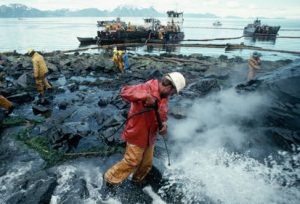 Refuge, east of Prudhoe Bay, to oil drilling. The environmental groups immediately opposed the proposal and it was initially defeated. Then, in 2006, the Senate voted 51-49 in favor of a budget resolution that included billions for Arctic drilling. Environmental groups are still fighting the legislation. I think, drilling at home is the best way to protect American jobs, and our economy, and as we all know, it could certainly use a serious boost right now.
Refuge, east of Prudhoe Bay, to oil drilling. The environmental groups immediately opposed the proposal and it was initially defeated. Then, in 2006, the Senate voted 51-49 in favor of a budget resolution that included billions for Arctic drilling. Environmental groups are still fighting the legislation. I think, drilling at home is the best way to protect American jobs, and our economy, and as we all know, it could certainly use a serious boost right now.
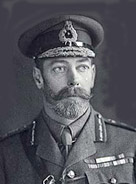 Wars always bring changes…especially in how nations feel about other nations. Sometimes, the whole world seems to be against one nation that has proven itself to be particularly evil. Germany was one of those nations that the entire world was against during World War I, as well as during World War II. It was during World War I that Britain’s King George V was quite concerned about the anti-German sentiment that existed in the world and in Britain. His family was of German descent, and the family name was very much a German name…Saxe-Coburg-Gotha, to be exact.
Wars always bring changes…especially in how nations feel about other nations. Sometimes, the whole world seems to be against one nation that has proven itself to be particularly evil. Germany was one of those nations that the entire world was against during World War I, as well as during World War II. It was during World War I that Britain’s King George V was quite concerned about the anti-German sentiment that existed in the world and in Britain. His family was of German descent, and the family name was very much a German name…Saxe-Coburg-Gotha, to be exact.
George was born on June 3, 1865, the second son of Prince Edward of Wales, who later became King Edward VII and Alexandra of Denmark, and the grandson of Queen Victoria. He embarked on a naval career before becoming heir to the throne in 1892 when his older brother, Edward, died of pneumonia. The following year, George married the German princess Mary of Teck, who was his cousin, a granddaughter of King George III, and who had previously been intended for Edward. The couple had six children, including the future Edward 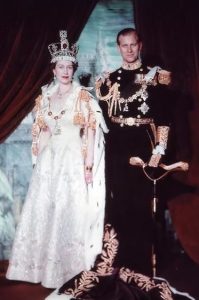 VIII and George VI, who took the throne in 1936 after his brother abdicated to marry the American divorcee Wallis Simpson. As the new Duke of York, George had to abandon his career in the navy. He became a member of the House of Lords and received a political education. When his father died in 1910, George ascended to the British throne as King George V.
VIII and George VI, who took the throne in 1936 after his brother abdicated to marry the American divorcee Wallis Simpson. As the new Duke of York, George had to abandon his career in the navy. He became a member of the House of Lords and received a political education. When his father died in 1910, George ascended to the British throne as King George V.
With the outbreak of World War I in the summer of 1914, strong anti-German feeling within Britain caused sensitivity among the royal family about its German roots. Kaiser Wilhelm II of Germany, also a grandson of Queen Victoria, was the king’s cousin; the queen herself was German. Public respect for the king increased during World War One, when he made many visits to the front line, hospitals, factories and dockyards. Still, because of anti-German feeling George V felt led to adopt the family name of Windsor, so on June 19, 1917, the king decreed that the royal surname was thereby changed from Saxe-Coburg-Gotha to Windsor, which it has remain since that day.
After the World War II, the current Prince Philip was granted permission by King George VI to marry the future Queen Elizabeth. Before the official announcement of their engagement, Philip abandoned his Greek and Danish royal titles and became a naturalized British subject, adopting the surname Mountbatten from his maternal grandparents. After an engagement of five months, he married Elizabeth on November 20, 1947. Just before  the wedding, Philip was made the Duke of Edinburgh. He left active military service when Elizabeth became monarch in 1952, having reached the rank of commander. He was formally made a British prince in 1957. Mountbatten-Windsor is the personal surname used by the male-line descendants of Queen Elizabeth II and Prince Philip, Duke of Edinburgh. Under a declaration made in Privy Council in 1960, the name Mountbatten-Windsor applies to male-line descendants of the Queen without royal styles and titles. Individuals with royal styles do not usually use a surname, but some descendants of the Queen with royal styles have used Mountbatten-Windsor when a surname was required.
the wedding, Philip was made the Duke of Edinburgh. He left active military service when Elizabeth became monarch in 1952, having reached the rank of commander. He was formally made a British prince in 1957. Mountbatten-Windsor is the personal surname used by the male-line descendants of Queen Elizabeth II and Prince Philip, Duke of Edinburgh. Under a declaration made in Privy Council in 1960, the name Mountbatten-Windsor applies to male-line descendants of the Queen without royal styles and titles. Individuals with royal styles do not usually use a surname, but some descendants of the Queen with royal styles have used Mountbatten-Windsor when a surname was required.
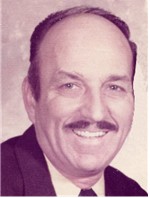
 Sometimes, it’s hard for me to realize that Father’s Day is again upon us. Since both my dad, Allen Spencer and my father-in-law, Walter Schulenberg are in Heaven now, the commercialized part of Father’s Day has little effect on me. I think about both of them daily, and miss them very much, but other than flowers for their graves, there is little in the way of things that I can give them. However, that does not mean that I don’t love, honor, and respect them today and every day. These days, I think that the best way for me to show honor to the two very special dads that God blessed me with is to try to live my life in a way that would make them proud. I suppose that a lot of people would say, “You are over 60 years old, you should do whatever you want to.” But, I don’t think that there ever comes a day when we should not try to make our parents proud. After all, they gave us life, and nurtured us all of the rest of their lives…yes, even when we were adults.
Sometimes, it’s hard for me to realize that Father’s Day is again upon us. Since both my dad, Allen Spencer and my father-in-law, Walter Schulenberg are in Heaven now, the commercialized part of Father’s Day has little effect on me. I think about both of them daily, and miss them very much, but other than flowers for their graves, there is little in the way of things that I can give them. However, that does not mean that I don’t love, honor, and respect them today and every day. These days, I think that the best way for me to show honor to the two very special dads that God blessed me with is to try to live my life in a way that would make them proud. I suppose that a lot of people would say, “You are over 60 years old, you should do whatever you want to.” But, I don’t think that there ever comes a day when we should not try to make our parents proud. After all, they gave us life, and nurtured us all of the rest of their lives…yes, even when we were adults.
With the passing of each of my dads, came the promise to take care of the moms. And to that task, we set 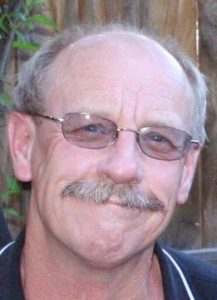 ourselves. It wasn’t always easy, but my dads loved their wives, and had taken care of them all of their married lives. One of the biggest worries of an elderly married person, is the thought that when they are gone, no one will take care of their spouse, and that is not a needless worry sometimes. Nevertheless, my dads knew that when they went home, my mom, Collene Spencer and my mother-in-law, Joann Schulenberg would be taken care of, and they were not wrong on that. My Dad passed away December 12, 2007, and we cared for my mom for seven years and two months, until her passing on February 22, 2015. My father-in-law passed away on May 5, 2013, and my mother-in-law is still alive today, and we continue to show her the love and respect she deserves, and he would want for her. These things were not a burden to be borne, but rather a privilege that was given to us…the privilege of still having our mom. No, there may not be much I can give my dad or my father-in-law, but I can do my best to always be the kind of person they would have wanted me to be.
ourselves. It wasn’t always easy, but my dads loved their wives, and had taken care of them all of their married lives. One of the biggest worries of an elderly married person, is the thought that when they are gone, no one will take care of their spouse, and that is not a needless worry sometimes. Nevertheless, my dads knew that when they went home, my mom, Collene Spencer and my mother-in-law, Joann Schulenberg would be taken care of, and they were not wrong on that. My Dad passed away December 12, 2007, and we cared for my mom for seven years and two months, until her passing on February 22, 2015. My father-in-law passed away on May 5, 2013, and my mother-in-law is still alive today, and we continue to show her the love and respect she deserves, and he would want for her. These things were not a burden to be borne, but rather a privilege that was given to us…the privilege of still having our mom. No, there may not be much I can give my dad or my father-in-law, but I can do my best to always be the kind of person they would have wanted me to be.
Of course, Father’s Day for me always takes in my own sweet husband, Bob Schulenberg, and my sons-in-law, 
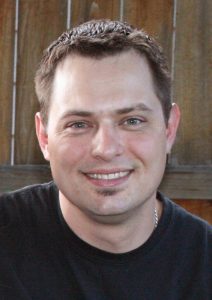 Kevin Petersen and Travis Royce, all of whom are amazing dads, and all of whom have enriched our family by being a part of it. Every day, they add richness to our lives with their hard work, sense of humor, and their deep love for us…their family. To me, that is the most important thing a man can do. These men have been in our family for many years now, Bob for 42 years, Kevin for 24 years, and Travis for 22 years…unheard of lengths of time in marriages these days. They have proven time and time again that they are worthy of our love and respect. God gave each of us such wonderful blessings in these men. I love each of them very much, as I do my two dads in Heaven, and I wish each of them and all dads everywhere, a very happy Father’s Day!!
Kevin Petersen and Travis Royce, all of whom are amazing dads, and all of whom have enriched our family by being a part of it. Every day, they add richness to our lives with their hard work, sense of humor, and their deep love for us…their family. To me, that is the most important thing a man can do. These men have been in our family for many years now, Bob for 42 years, Kevin for 24 years, and Travis for 22 years…unheard of lengths of time in marriages these days. They have proven time and time again that they are worthy of our love and respect. God gave each of us such wonderful blessings in these men. I love each of them very much, as I do my two dads in Heaven, and I wish each of them and all dads everywhere, a very happy Father’s Day!!
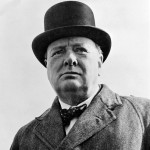
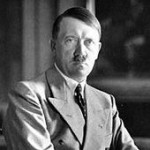 In a war, sometimes the best thing that can be done is to retreat, but that is not always easy to do. When the enemy is closing in and there seems no way of escape. Sometimes, a way of escape seems to come together in such a way that it almost seems miraculous…or maybe that is the only real explanation…a miracle. Such seemed to be the case with Britain both in Dunkirk, France, called Operation Dynamo, and again from Cherbourg, Saint Malo, Brest, and Nantes, dubbed Operation Aerial. The evacuation from Dunkirk, was most likely the largest of its kind, or at least up to that date. I suppose there might have been others since then, but I am not aware of any. During the evacuation of Dunkirk, the British managed to evacuate 338,226 soldiers…and almost unheard of amount of men were saved, by a coordinated effort using 860 boats. During Operation Ariel, another 191,870 troops were rescued, bringing the total of military and civilian personnel returned to Britain during the Battle of France to 558,032, including 368,491 British troops.
In a war, sometimes the best thing that can be done is to retreat, but that is not always easy to do. When the enemy is closing in and there seems no way of escape. Sometimes, a way of escape seems to come together in such a way that it almost seems miraculous…or maybe that is the only real explanation…a miracle. Such seemed to be the case with Britain both in Dunkirk, France, called Operation Dynamo, and again from Cherbourg, Saint Malo, Brest, and Nantes, dubbed Operation Aerial. The evacuation from Dunkirk, was most likely the largest of its kind, or at least up to that date. I suppose there might have been others since then, but I am not aware of any. During the evacuation of Dunkirk, the British managed to evacuate 338,226 soldiers…and almost unheard of amount of men were saved, by a coordinated effort using 860 boats. During Operation Ariel, another 191,870 troops were rescued, bringing the total of military and civilian personnel returned to Britain during the Battle of France to 558,032, including 368,491 British troops.
Operation Aerial began on June 15, 1940 and ended on June 25, 1940. Following the military collapse in the Battle of France against Nazi Germany, it became evident that Allied soldiers and civilians were in grave danger. With two-thirds of France now occupied by German troops, those British and Allied troops that had not participated in Operation Dynamo, the evacuation of Dunkirk, were shipped home, but there remained a concern for the areas from Cherbourg, St. Malo, Brest, and Nantes. While these men were not under the immediate threat of assault, as at Dunkirk, they were by no means safe, so Brits, Poles, and Canadian troops were rescued from occupied territory by boats sent from Britain. Meanwhile, British Prime Minister Winston Churchill offered words of encouragement in a broadcast to the nation, “Whatever has happened in France…we shall defend our island home, and with the British Empire we shall fight on unconquerable until the curse of Hitler is lifted.” This was his way of promising that Britain would never fall under Nazi rule.
Operation Aerial was split into two sectors. Admiral James, based at Portsmouth, was to control the evacuation from Cherbourg and St Malo, while Admiral Dunbar-Nasmith, the commander-in-chief of the Western Approaches, based at Plymouth, would control the evacuation from Brest, St. Nazaire and La Pallice. Eventually this western evacuation would extend to include the ports on the Gironde estuary, Bayonne and St Jean-de-Luz. Once the people were on board, I’m sure they thought they were finally safe, but that was not necessarily the case. The Germans attacked the rescue boats. Among those rescued from the shores of France, were 5,000 soldiers and French civilians on board the ocean liner Lancastria, which had picked them up at St. Nazaire. Germans bombers sunk the liner on June 17, 1940, and 3,000 passengers drowned. Churchill ordered that news of the Lancastria not be broadcast in Britain, fearing the effect it would have on public morale, since everyone was already worried about a possible German invasion now that only a channel separated them. The British public would eventually find out, but not for another six weeks, when the news broke in the United States. They would also receive the good news that Hitler had no immediate plans for an invasion of the British isle, “being well aware of the difficulties involved in such an operation,” reported the German High Command.
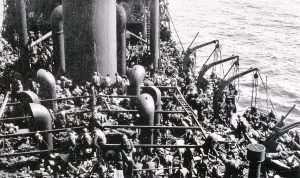
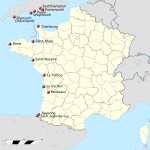
In the end, the evacuations dubbed Operation Dynamo and Operation Aerial, were successful, in that most of those who were evacuated made it home. I’m sure that the retreats did not feel like a success or a victory to the soldiers fighting in the Battle of France, but I am also sure that they were thankful to be among those who made it home. They would live to fight another day in the horrendous war that was World War II.
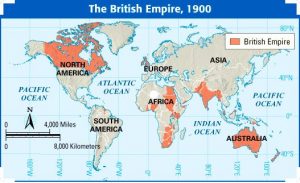 World wars are a complicated matter. There are multiple enemies, multiple allies, and the lines are not necessarily very clear. The one thing that always seems to be a constant, however, is territory. Imperialism…when a country takes over new lands or countries and makes them subject to their rule, played a big roll in World War I, as did industrialism. By 1900, any territorial gain by one power meant the loss of territory by another, and for Britain, the strongest of all the empires, that was a problem. Britain’s colonial territory was over 100 times the size of its own territory at home, thus giving rise to the phrase “the sun never sets on the British empire.” At this same time, France had control of large areas of Africa. With the rise of industrialism countries needed new markets. The amount of lands owned by Britain and France increased the rivalry with Germany who had entered the scramble to acquire colonies late and only had small areas of Africa.
World wars are a complicated matter. There are multiple enemies, multiple allies, and the lines are not necessarily very clear. The one thing that always seems to be a constant, however, is territory. Imperialism…when a country takes over new lands or countries and makes them subject to their rule, played a big roll in World War I, as did industrialism. By 1900, any territorial gain by one power meant the loss of territory by another, and for Britain, the strongest of all the empires, that was a problem. Britain’s colonial territory was over 100 times the size of its own territory at home, thus giving rise to the phrase “the sun never sets on the British empire.” At this same time, France had control of large areas of Africa. With the rise of industrialism countries needed new markets. The amount of lands owned by Britain and France increased the rivalry with Germany who had entered the scramble to acquire colonies late and only had small areas of Africa.
During this time Germany became concerned that Russia might try to take over their nation, so they signed a 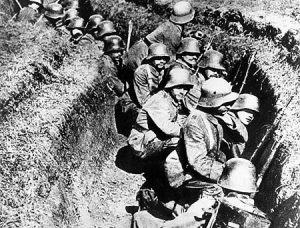 treaty with Austria-Hungary to protect each other from Russia. The Dual Alliance was created by treaty on October 7, 1879 as part of Bismarck’s system of alliances to prevent or limit war. The two powers promised each other support in case of attack by Russia. Also, each state promised benevolent neutrality to the other if one of them was attacked by another European power, most likely France. Germany’s Otto von Bismarck saw the alliance as a way to prevent the isolation of Germany and to preserve peace, as Russia would not wage war against both empires. Then in 1881, Austria-Hungary made an alliance with Serbia to stop Russia from gaining control of Serbia. Before long alliances were popping up everywhere. Germany and Austria-Hungary made an alliance with Italy in 1882 that was dubbed The Triple Alliance to stop Italy from taking sides with Russia. Then in 1894, Russia formed an alliance with France called the Franco-Russian Alliance, to protect Russia against Germany and Austria-Hungary.
treaty with Austria-Hungary to protect each other from Russia. The Dual Alliance was created by treaty on October 7, 1879 as part of Bismarck’s system of alliances to prevent or limit war. The two powers promised each other support in case of attack by Russia. Also, each state promised benevolent neutrality to the other if one of them was attacked by another European power, most likely France. Germany’s Otto von Bismarck saw the alliance as a way to prevent the isolation of Germany and to preserve peace, as Russia would not wage war against both empires. Then in 1881, Austria-Hungary made an alliance with Serbia to stop Russia from gaining control of Serbia. Before long alliances were popping up everywhere. Germany and Austria-Hungary made an alliance with Italy in 1882 that was dubbed The Triple Alliance to stop Italy from taking sides with Russia. Then in 1894, Russia formed an alliance with France called the Franco-Russian Alliance, to protect Russia against Germany and Austria-Hungary.
Now at this point, I’m sure you feel as confused about all this as I did. To me, it seems like it would be very difficult to know who the enemy really was, and even if you knew, it was subject to change, depending on who they formed an alliance with. That is also why I was wondering why on June 16, 1918, the Battle of the Piave River was raging on the Italian front. Russia had bowed out of the war effort in early 1918, and Germany began 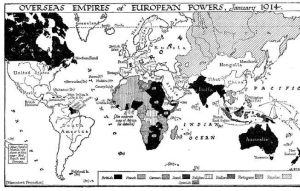 to pressure its ally, Austria-Hungary, to devote more resources to combating Italy. Wait…I thought Italy was their ally…apparently not so much. Specifically, the Germans wanted a major new offensive along the Piave River, located just a few kilometers from such important Italian urban centers as Venice, Padua and Verona. In addition to striking on the heels of Russia’s withdrawal, the offensive was intended as a follow-up to the spectacular success of the German-aided operations at Caporetto in the autumn of 1917. Wars really seem to be quite senseless, but when Imperialistic nations try to expand their territories, I guess, alliances can be made and broken quite easily.
to pressure its ally, Austria-Hungary, to devote more resources to combating Italy. Wait…I thought Italy was their ally…apparently not so much. Specifically, the Germans wanted a major new offensive along the Piave River, located just a few kilometers from such important Italian urban centers as Venice, Padua and Verona. In addition to striking on the heels of Russia’s withdrawal, the offensive was intended as a follow-up to the spectacular success of the German-aided operations at Caporetto in the autumn of 1917. Wars really seem to be quite senseless, but when Imperialistic nations try to expand their territories, I guess, alliances can be made and broken quite easily.

 My grandnephew, James Renville is a quiet sort of guy, but let him decide that he needs to tease his dad or his step-dad, and he’s anything but quiet. He not only loves to tease them, but he loves to video the whole process. I’m sure he has two reasons for the video…re-living the moment, and re-torturing the victims. James isn’t being mean, he is just enjoying the moment…and you have to admit that once you have teased someone you love, you have to laugh about the moment for the rest of the day. James is also a great friend to his cousins, many of whom are much younger. He plays with them and teases them as well, and they all love it, and have a great time. That’s the funny thing about little kids…they love to be teased by their older cousins and such, because they know that it’s all in good fun, and they always love the attention.
My grandnephew, James Renville is a quiet sort of guy, but let him decide that he needs to tease his dad or his step-dad, and he’s anything but quiet. He not only loves to tease them, but he loves to video the whole process. I’m sure he has two reasons for the video…re-living the moment, and re-torturing the victims. James isn’t being mean, he is just enjoying the moment…and you have to admit that once you have teased someone you love, you have to laugh about the moment for the rest of the day. James is also a great friend to his cousins, many of whom are much younger. He plays with them and teases them as well, and they all love it, and have a great time. That’s the funny thing about little kids…they love to be teased by their older cousins and such, because they know that it’s all in good fun, and they always love the attention.
James enjoys lots of fun activities with his parents. He loves to travel and they have gone to many awesome places. It has been educational, enlightening, and very fun for James. I’m sure that is why he loves to travel…especially in Europe. James as taken a couple of European trips already, and had a great time on both trips. James reminds me quite a bit of my dad, his great grandpa, Allen Spencer, in that way. My dad loved to travel and loved showing his family this great country. My dad, like James also did some travel abroad, but his travel was during World War II, so I’m sure that many things were different then.
James is in college now, attending Casper College here in Casper. He isn’t sure what field he wants to go into yet, and that’s ok. He is going to get all of the required subjects out of the way, and then he can fully focus on 
 the career of his choosing. James is also a huge fan of and awesome participant in the sport of inline rollerblading. When he puts on his rollerblades, he is in his element. He loves all things rollerblades. James spends quite a bit of time watching YouTube videos of rollerblade tricks and crashes to learn new tricks…and maybe to avoid crashes. He enjoys perfecting his moves, and learning new ones from the videos he watches. His mom, Toni Chase, says he is amazing at rollerblading. Some day I will have to see him for myself. Today is James’ birthday. Happy birthday James!! Have a great day!! We love you!!
the career of his choosing. James is also a huge fan of and awesome participant in the sport of inline rollerblading. When he puts on his rollerblades, he is in his element. He loves all things rollerblades. James spends quite a bit of time watching YouTube videos of rollerblade tricks and crashes to learn new tricks…and maybe to avoid crashes. He enjoys perfecting his moves, and learning new ones from the videos he watches. His mom, Toni Chase, says he is amazing at rollerblading. Some day I will have to see him for myself. Today is James’ birthday. Happy birthday James!! Have a great day!! We love you!!

 Since my nephew, Garrett Stevens’ wife, Kayla was hired to work as a social worker in a therapy clinic in Sheridan, Wyoming, they have been busily planning their move. Garrett is still working here in Casper, and will start looking for work in Sheridan when they get moved up there. Kayla has been house hunting, and has found a great house for them to buy, so everything is falling into place for their move. I know that they are going to be very successful living in Sheridan, and since Kayla’s family lives there, they already have some leads for Garrett in his job search. Garrett is a great welder, and will be an asset to any company. I’m sure that he will find a great job quickly. I know that with this move comes the excitement of a new adventure…a new chapter in their lives.
Since my nephew, Garrett Stevens’ wife, Kayla was hired to work as a social worker in a therapy clinic in Sheridan, Wyoming, they have been busily planning their move. Garrett is still working here in Casper, and will start looking for work in Sheridan when they get moved up there. Kayla has been house hunting, and has found a great house for them to buy, so everything is falling into place for their move. I know that they are going to be very successful living in Sheridan, and since Kayla’s family lives there, they already have some leads for Garrett in his job search. Garrett is a great welder, and will be an asset to any company. I’m sure that he will find a great job quickly. I know that with this move comes the excitement of a new adventure…a new chapter in their lives.
The first years of their relationship, and this first year of their marriage have been spent with Kayla as a student. As anyone who has a masters degree knows, that means lots of studying. Of course, Garrett was supportive of Kayla in her studies, but now that the education time is behind them, I think they will have lots more time to do the fun things they like to do, and for starting a family in the future. That makes the next chapter of their lives very exciting. Things like becoming homeowners, and working in the careers that they have both studied for and enjoy, will make this new chapter very exciting for them.
Garrett loves doing outdoorsy things like camping, hunting, and fishing. He loves sports…all kinds of sports. But he is also very much a family sort of guy. He has been a great older cousin to all of his cousins. They love to hang out with Garrett, because he isn’t too “old” to play with them. So often, people who don’t have children, 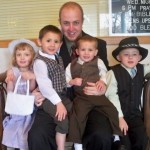
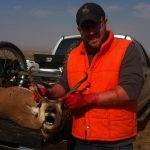 would rather that other people’s kids would just stay away, but not Garrett. He would love to have a dozen kids around him at any given moment, and it’s ok if they are crawling all over him too. He just takes it all in stride, or maybe like most kids, rough housing is the order of the day. And he loves babies as much as the older kids. Crying is not a problem. He will sooth them and before you know it, they are calm or sleeping. Garrett will make a great dad some day, but that is a completely different new chapter. Today is Garrett’s birthday. Happy birthday Garrett!! Have a great day!! We love you!!
would rather that other people’s kids would just stay away, but not Garrett. He would love to have a dozen kids around him at any given moment, and it’s ok if they are crawling all over him too. He just takes it all in stride, or maybe like most kids, rough housing is the order of the day. And he loves babies as much as the older kids. Crying is not a problem. He will sooth them and before you know it, they are calm or sleeping. Garrett will make a great dad some day, but that is a completely different new chapter. Today is Garrett’s birthday. Happy birthday Garrett!! Have a great day!! We love you!!
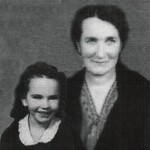 My cousin, Shirley Cameron is the first granddaughter of my grandmother, Anna Louise Schumacher Spencer and grandfather, Allen Luther Spencer, and would remain the only granddaughter for nearly the first seven years of her life. As the first granddaughter, and the only one for so long, she and my grandmother became quite close. Grandma passed away when I was just six months old, so I never really got to know her. Nevertheless, Shirley has told me a few things about Grandma that give me a bit of a view of her…humorous side. Kids tend to get into trouble with their parents, and Shirley is no different, but Shirley had a bit of an edge when it came to getting in trouble with her mom. She would run to her Grandma Spencer, who would teasingly shield her from her mother’s wrath. It’s one thing to plan to spank your child, but when your mother gets in the middle of things and makes the whole thing seem like a game of chase, it sometimes becomes impossible…not to laugh, that is.
My cousin, Shirley Cameron is the first granddaughter of my grandmother, Anna Louise Schumacher Spencer and grandfather, Allen Luther Spencer, and would remain the only granddaughter for nearly the first seven years of her life. As the first granddaughter, and the only one for so long, she and my grandmother became quite close. Grandma passed away when I was just six months old, so I never really got to know her. Nevertheless, Shirley has told me a few things about Grandma that give me a bit of a view of her…humorous side. Kids tend to get into trouble with their parents, and Shirley is no different, but Shirley had a bit of an edge when it came to getting in trouble with her mom. She would run to her Grandma Spencer, who would teasingly shield her from her mother’s wrath. It’s one thing to plan to spank your child, but when your mother gets in the middle of things and makes the whole thing seem like a game of chase, it sometimes becomes impossible…not to laugh, that is.
Our grandmother spent part of her time in a wheelchair, due to Rheumatoid Arthritis, and Shirley remembers climbing up on her lap and tearing around the house with much screaming, of excitement that is, while her mother most likely sported a headache from all the noise, but I must admit, I would probably find it quite fun to ride around the house on Grandma’s lap in her wheelchair. I also think that while Grandma and Shirley might have ganged up on Aunt Ruth, and Grandma might have helped Shirley get away with a few things, Aunt 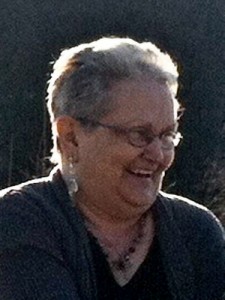 Ruth probably also loved watching the two of them being so close. I suppose that could be the grandma in me talking, because I loved being so close to my grandchildren. It is a privilege that is simply priceless. Nevertheless, I think my grandkids liked it too. There is just something wonderful about being close to your grandparents.
Ruth probably also loved watching the two of them being so close. I suppose that could be the grandma in me talking, because I loved being so close to my grandchildren. It is a privilege that is simply priceless. Nevertheless, I think my grandkids liked it too. There is just something wonderful about being close to your grandparents.
As with most of us, those childhood days have long since turned into childhood memories. Both Grandma and Aunt Ruth have been in Heaven now for many years, but Shirley will always have the memories of those amazing fun times, and that is something most of the rest of us will never have, because we were either too little, or not born yet, when our grandma passed away, with the exception of three of the grandsons. Knowing Grandma is something I wish I had been able to do too, but I love hearing about the good times Shirley and Grandma had. Today is Shirley’s 70th birthday. Happy birthday Shirley!! Have a great day!! We love you!!
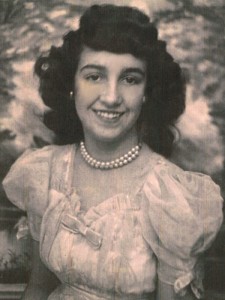 For much of her life, my Aunt Virginia Beadle was a working woman. She spent time working for the telephone company, and also for the State of Wyoming. I remember seeing her sometimes all dressed up for work, and thinking that she looked so sophisticated. I wanted to dress up like her…to look like a real lady, and as an adult, I have spent many years in the working world too, where I have always remembered just how nice my Aunt Virginia looked. I have tried to keep that picture of the sophisticated lady that she always was in my mind in my own career. I have felt that a successful working woman was always stylish, whether wearing a dress or pants. For some reason that stuck out more to me than the actual work the woman did. I suppose that was the little girl in me remembering how stylish Aunt Virginia was.
For much of her life, my Aunt Virginia Beadle was a working woman. She spent time working for the telephone company, and also for the State of Wyoming. I remember seeing her sometimes all dressed up for work, and thinking that she looked so sophisticated. I wanted to dress up like her…to look like a real lady, and as an adult, I have spent many years in the working world too, where I have always remembered just how nice my Aunt Virginia looked. I have tried to keep that picture of the sophisticated lady that she always was in my mind in my own career. I have felt that a successful working woman was always stylish, whether wearing a dress or pants. For some reason that stuck out more to me than the actual work the woman did. I suppose that was the little girl in me remembering how stylish Aunt Virginia was.
Of course, Aunt Virginia’s look and her clothes were not what made her a great employee, but rather the fact that she was very good at her jobs. I can’t say that I know all the details of what her job entailed, but just the fact that she held her jobs so long and that she was very much respected at her workplace, tells me that she was an amazing worker too. People don’t have respect for a worker who doesn’t do their job, and I happen to know that she as a hard working woman. She was respected and well liked at her job, so that tells me that she was very good at it.
 Aunt Virginia has always been a stylish woman, whether at work or at home, and while she was very good at her jobs, her real life was her family. She loves her kids, and she has been very blessed with many grandchildren and great grandchildren. I really love seeing her with those babies, because her eyes just sparkle. Being the second oldest of my grandparents’ children, Aunt Virginia will also, at this birthday, become the one who has lived the longest. That has afforded her the great pleasure of lots of new babies to cuddle with. I love seeing her with all of those babies, because she just seems to be totally in her element. It is a sweet thing to watch, as is her interaction with all of her nieces and nephews. Today is Aunt Virginia’s 87th birthday. Happy birthday Aunt Virginia!! Have a great day!! We love you!!
Aunt Virginia has always been a stylish woman, whether at work or at home, and while she was very good at her jobs, her real life was her family. She loves her kids, and she has been very blessed with many grandchildren and great grandchildren. I really love seeing her with those babies, because her eyes just sparkle. Being the second oldest of my grandparents’ children, Aunt Virginia will also, at this birthday, become the one who has lived the longest. That has afforded her the great pleasure of lots of new babies to cuddle with. I love seeing her with all of those babies, because she just seems to be totally in her element. It is a sweet thing to watch, as is her interaction with all of her nieces and nephews. Today is Aunt Virginia’s 87th birthday. Happy birthday Aunt Virginia!! Have a great day!! We love you!!
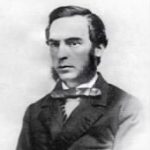
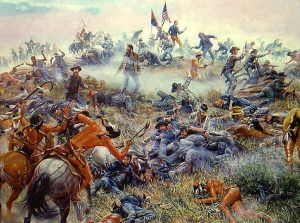 These days, as wars are fought, we often see, hear, and read the stories written by embedded reporters. It seems almost commonplace, and yet in reality, whenever these reporters go into a war zone, they are risking almost as much as the soldiers. Of course, the reporters don’t go out to attack the enemy, but because of where they are, and who they are with, they make themselves a target to the enemy too. Even as far back as the World Wars, embedded reporters seemed like a common phenomenon, but who would have thought of an embedded reporter as far back as the Indian wars? I certainly didn’t. Nevertheless, journalists were there. One such journalist, who became famous, mostly because he was killed, was Marcus Kellogg, who was traveling with Custer’s 7th Cavalry. Kellogg was a native of Ontario, Canada before immigrating to New York with his family in 1835. As a young man he mastered the art of the telegraph and went to work for the Pacific Telegraphy Company in Wisconsin. During the Civil War, he felt led toward a different calling. He left his career in telegraphy, and became a journalist. Then in 1873, he again felt the calling to change his life, when he decided to move west to the frontier town of Bismarck in Dakota Territory and became the assistant editor of the Bismarck Tribune.
These days, as wars are fought, we often see, hear, and read the stories written by embedded reporters. It seems almost commonplace, and yet in reality, whenever these reporters go into a war zone, they are risking almost as much as the soldiers. Of course, the reporters don’t go out to attack the enemy, but because of where they are, and who they are with, they make themselves a target to the enemy too. Even as far back as the World Wars, embedded reporters seemed like a common phenomenon, but who would have thought of an embedded reporter as far back as the Indian wars? I certainly didn’t. Nevertheless, journalists were there. One such journalist, who became famous, mostly because he was killed, was Marcus Kellogg, who was traveling with Custer’s 7th Cavalry. Kellogg was a native of Ontario, Canada before immigrating to New York with his family in 1835. As a young man he mastered the art of the telegraph and went to work for the Pacific Telegraphy Company in Wisconsin. During the Civil War, he felt led toward a different calling. He left his career in telegraphy, and became a journalist. Then in 1873, he again felt the calling to change his life, when he decided to move west to the frontier town of Bismarck in Dakota Territory and became the assistant editor of the Bismarck Tribune.
Then, while returning from a trip to the East, Kellogg happened to be on the same train as George Custer and his wife, Elizabeth. Custer was on his way to Fort Abraham Lincoln, near Bismarck, where he was going to lead the 7th Cavalry in a planned assault on several bands of Indians who had refused to be confined to reservations. There journey was delayed by an unusually heavy winter storm. The train became snowbound. Being the expert that he was, Kellogg improvised a crude telegraph key, connected it to the wires running alongside the track, and sent a message ahead to the fort asking for help. Custer’s brother, Tom, arrived soon after with a sleigh to rescue them. Custer had enjoyed being made famous by the nation’s newspapers during the Civil War, and now, as he prepared for what he hoped would be his greatest victory ever, Custer wanted to make sure his glorious deeds would be adequately covered in the press. Initially, Custer had planned to take his old friend Clement Lounsberry, who was Kellogg’s employer at the Tribune, with him into the field with the 7th Cavalry, but after meeting Kellogg, he chose him to go instead, mostly because Custer had been impressed by his resourcefulness with a telegraph key.
That one chance event in the winter of 1876, took Kellogg in an unexpected direction…toward the Little Big Horn. When Custer led his soldiers out of Fort Abraham Lincoln and headed west for Montana on May 31, Kellogg rode with him. During the next few weeks, Kellogg filed three dispatches from the field to the Bismarck Tribune, which in turn passed the stories on to the New York Herald. Wanting to make sure the word got out, Custer also sent three anonymous reports on his progress to the Herald. Kellogg’s first dispatches, dated May 31 and June 12, recorded the progress of the expedition westward. His final report, dated June 21, came from the army’s camp along the Rosebud River in southern Montana, not far from the Little Big Horn River. “We leave the Rosebud tomorrow,” Kellogg wrote, “and by the time this reaches you we will have met and fought the red devils, with what result remains to be seen.” The results, of course, were disastrous. Four days later, Sioux and Cheyenne warriors wiped out Custer and his men along the Little Big Horn River. Kellogg was the only journalist to witness the final moments of Custer’s 7th Cavalry. Had he been able to file a story he would have become a national celebrity, but Kellogg did not live to tell the tale, he died alongside Custer’s soldiers.
On July 6, the Bismarck Tribune printed a special extra edition with a top headline reading: “Massacred: Gen. Custer and 261 Men the Victims.” Further down in the column, in substantially smaller type, a sub-headline reported: “The Bismarck Tribune’s Special Correspondent Slain.” The article went on to report, “The body of Kellogg alone remained unstripped of its clothing, and was not mutilated.” The reporter speculated that this 
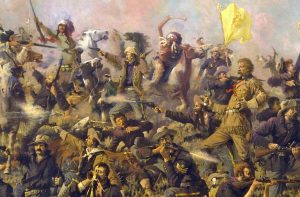 might have been a result of the Indian’s “respect for this humble shover of the lead pencil.” I doubt that the Sioux and Cheyenne respected Kellogg for his journalistic abilities, but his death in one of the most notorious events in the nation’s history made him something of an martyr among newspapermen. The New York Herald later erected a monument to Kellogg over the supposed site of his grave on the Little Big Horn battlefield. Being an embedded journalist might be exciting, but it’s quite risky too.
might have been a result of the Indian’s “respect for this humble shover of the lead pencil.” I doubt that the Sioux and Cheyenne respected Kellogg for his journalistic abilities, but his death in one of the most notorious events in the nation’s history made him something of an martyr among newspapermen. The New York Herald later erected a monument to Kellogg over the supposed site of his grave on the Little Big Horn battlefield. Being an embedded journalist might be exciting, but it’s quite risky too.

